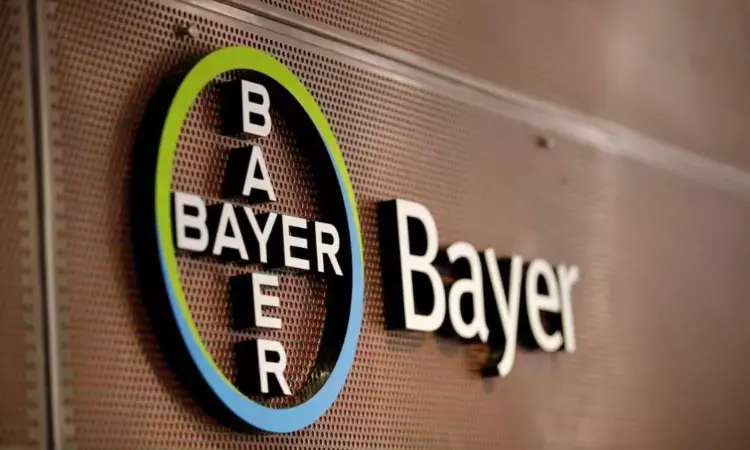- Home
- Medical news & Guidelines
- Anesthesiology
- Cardiology and CTVS
- Critical Care
- Dentistry
- Dermatology
- Diabetes and Endocrinology
- ENT
- Gastroenterology
- Medicine
- Nephrology
- Neurology
- Obstretics-Gynaecology
- Oncology
- Ophthalmology
- Orthopaedics
- Pediatrics-Neonatology
- Psychiatry
- Pulmonology
- Radiology
- Surgery
- Urology
- Laboratory Medicine
- Diet
- Nursing
- Paramedical
- Physiotherapy
- Health news
- Fact Check
- Bone Health Fact Check
- Brain Health Fact Check
- Cancer Related Fact Check
- Child Care Fact Check
- Dental and oral health fact check
- Diabetes and metabolic health fact check
- Diet and Nutrition Fact Check
- Eye and ENT Care Fact Check
- Fitness fact check
- Gut health fact check
- Heart health fact check
- Kidney health fact check
- Medical education fact check
- Men's health fact check
- Respiratory fact check
- Skin and hair care fact check
- Vaccine and Immunization fact check
- Women's health fact check
- AYUSH
- State News
- Andaman and Nicobar Islands
- Andhra Pradesh
- Arunachal Pradesh
- Assam
- Bihar
- Chandigarh
- Chattisgarh
- Dadra and Nagar Haveli
- Daman and Diu
- Delhi
- Goa
- Gujarat
- Haryana
- Himachal Pradesh
- Jammu & Kashmir
- Jharkhand
- Karnataka
- Kerala
- Ladakh
- Lakshadweep
- Madhya Pradesh
- Maharashtra
- Manipur
- Meghalaya
- Mizoram
- Nagaland
- Odisha
- Puducherry
- Punjab
- Rajasthan
- Sikkim
- Tamil Nadu
- Telangana
- Tripura
- Uttar Pradesh
- Uttrakhand
- West Bengal
- Medical Education
- Industry
Bayer establishes Bioethics Council

Leverkusen: Bayer AG has established a Bioethics Council consisting of internationally renowned experts, to provide broad independent perspective and guidance on current bioethical questions, particularly with regard to the development of new biotechnological and artificial intelligence based solutions. The Bioethics Council will maintain regular dialogue with Bayer leadership on the implementation and long-term development of Bayer’s Bioethics Policy.
“I am very pleased that we have been able to attract a diverse group of world-leading ethics experts – from the fields of biotechnology, health care and artificial intelligence, among others – to join Bayer’s Bioethics Council,” said Dr. Michael Devoy, Chief Medical Officer of Bayer’s Pharmaceuticals Division.
“Their expertise provides us with guidance on complex bioethical issues. Innovations in life sciences can raise ethical questions that society needs to discuss. In the interest of transparency, we deem it important to include a societal perspective early in our research and product development process through the external Bioethics Council,” he added.
To this end, the Bioethics Council focuses, among others, on the further development and implementation of Bayer’s Bioethics Policy. This policy represents a company-wide ethical framework for decisions relevant to R&D innovations in the life sciences. It covers medical topics, bioengineering, and artificial intelligence. The Bioethics Policy specifically gives guidance on issues related to the discovery, development, production and application of treatments and therapies to promote human health, and in agricultural products and services.
“Innovations in the life sciences will fundamentally change our health and nutrition systems in the future,” said Dr. Monika Lessl, Head of Corporate R&D and Social Innovation at Bayer AG. “We are aware of our responsibility as a research company and therefore want to actively participate in the further development of bioethical standards in dialogue with society. Exchange with external experts is essential for this,” she emphasized.
Dr. Axel Trautwein, Head of Regulatory Science at Bayer Crop Science, added: “Developing innovations in the life sciences, particularly in biotechnology, inevitably requires a thorough assessment of the ethical implications for people and the environment. Bayer wants to raise and uphold high bioethical standards throughout its operations – with the help of the Bioethics Council. Being transparent about our approach and our progress in this process is the cornerstone of all our efforts in building a solid ethical framework for our business.”
The Bioethics Council convenes twice a year. In addition, the experts offer support on specific questions, either individually or in small teams. The Council is designed in several ways to safeguard the independence of its members. The experts provide external independent advice and do not represent Bayer or its operations.
The Council currently has ten members. Bayer will regularly report on its work.
Members of the Bayer Bioethics Council are:
Carolina Aguerre, Professor of Humanities and Social Sciences, Universidad Católica del Uruguay
I. Glenn Cohen, Professor of Law and Faculty Director, Petrie-Flom Center for Health Law Policy, Biotechnology & Bioethics, Harvard Law School
Gry Hasselbalch, PhD, Independent scholar
Insoo Hyun, Director of the Center for Life Sciences and Public Learning, Boston Museum of Science
Andreas Kurtz, Head of the Human Pluripotent Stem Cell Registry (hPSCreg, former European Human Embryonic Stem Cell Registry)
Sir Jonathan Montgomery, Professor of Health Care Law, University College London
Jonathan D. Moreno, Professor of Medical Ethics & Health Policy and of the History & Sociology of Science, University of Pennsylvania
Anne Muigai, Professor of Genetics and Deputy Vice Chancellor of Academic Affairs and Research at the National Defence University-Kenya
Sonny Ramaswamy, President of the Northwest Commission on Colleges and Universities in Redmond, WA, USA
Julian Savulescu, Chen Su Lan Professor in Medical Ethics at the National University of Singapore
Ruchika Sharma joined Medical Dialogue as an Correspondent for the Business Section in 2019. She covers all the updates in the Pharmaceutical field, Policy, Insurance, Business Healthcare, Medical News, Health News, Pharma News, Healthcare and Investment. She has completed her B.Com from Delhi University and then pursued postgraduation in M.Com. She can be contacted at editorial@medicaldialogues.in Contact no. 011-43720751


